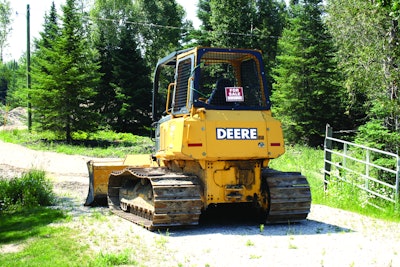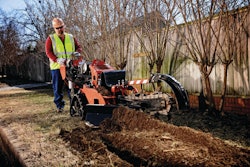
I am writing this on May 14th, in Chicago (with its seasonal workloads), entering into the period that will make us or break us for 2011. And what do I see?
Doing the kind of work I do, I get to see a lot of things. I am a CFO of an equipment rental company, and I also work with the Associated Equipment Distributors. As a result, I get to speak to numerous dealers around the country, as well as to Ken Hedlund, a CPA with a national construction practice. Add in the banks and equipment manufacturers and I believe I wind up with a pretty good idea what is happening out there in the construction world.
What I see is more work for contractors being done by fewer people spread out over a larger geographic area, with slim margins and hard to find financing opportunities. I also see contractors not receiving timely payment, thus creating problems with their vendors and subs. There is work for those of you still in business, but it is still not pretty. The good thing, however, is that the contractors working seem to have a pretty good backlog for the rest of the year.
Rentals, Used Equipment on the Rise
What is most interesting is the sharp increase in rental requests and used equipment sales. I believe two things are happening:
1. We are feeling the effects of rental company downsizing.
2. Contractors sold off a lot of equipment or have deferred replacement purchases so long that they have to replace some units in order to complete the work they have on the books.
What I'm hearing on the dealer front is an expected lack of new sales. Yet, there is also a lack of technicians to handle all of the service work coming in the door to bring construction equipment back into working order. Carry this assumption one step further and you get contractors who find the repair bills overwhelming, or find the lead times to get parts and the repair completely unacceptable — and thus the jump in rentals and used equipment purchases. Kinda makes sense...right?
This has the possibility of either helping or hurting your bottom line. It hurts if you find yourself without the proper equipment to efficiently get your job done; equipment that keeps breaking down; excessive rental costs that will be tough to pass on; or new equipment loan payments you are going to regret signing up for once the season in over. I guess you have to decide which is the lesser evil to deal with.
Your most flexible option is rental, and then the used equipment purchase. You probably didn't need me to figure that out. A new equipment purchase is also an option that will provide a low-cost maintenance event for a while; but the monthly nut and the fact that you will be under water against the loan value for at least three years scares me. Been there, done that.
Assuming you will be renting more, let me inform you of who is going to get what they need and when they need it from the rental company:
- Loyal customers
- Customers who pass the credit test
- Customers who pay on time
- Customers who don't keep calling for daily rentals
Let me put it this way: If I have never heard of you before, you don't complete the credit application on time, you demand a 7 a.m. delivery for a one-day rental and your last invoice is now 90 days outstanding, guess what? You go to the bottom of the list.
A Smart Choice
If you can't afford or don't have the credit for a new unit, you can try to find a decent used piece of equipment, or try a rent-to-buy transaction to build some equity into your deal. There are many sources for used equipment. However, your local rental company or dealer is probably the smartest choice. Sure, you will pay more, but when you need the service, they are right there to get it done. And quite frankly, you can't take the chance that equipment downtime will eat you up.
To ease your equipment woes, I suggest visiting the rental company or dealer you want to do business with. Get the credit application on file or agree to pay by credit card until credit is established. Have them introduce you to a rental manager you can stay in contact with regarding your equipment requirements. Making donut runs for the rental or service department personnel is cheap insurance for getting what you need when you need it.
In conclusion, I suggest you keep as much of your powder dry for as long as you can. Work smart. Plan your equipment needs far in advance.


















